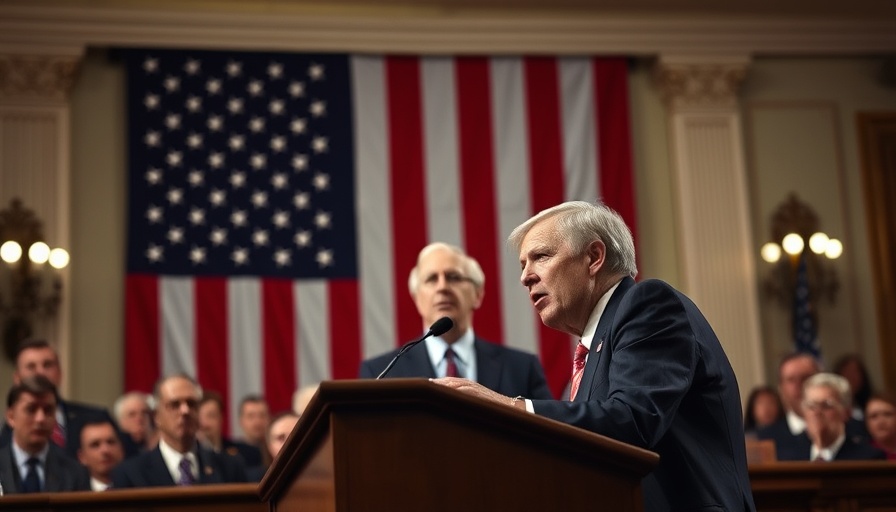
Understanding the Nixon Shock's Relevance Today
The 'Nixon shock' of 1971 marked a pivotal moment in U.S. economic history when President Richard Nixon suspended the dollar's convertibility into gold, effectively ending the Bretton Woods system. This action, prompted by rising inflation and trade imbalances, reverberated through financial markets and set the stage for a new era of economic policy.
Lessons from History: Parallels with the Trump Presidency
Drawing parallels between the Nixon shock and the current dynamics under President Trump's administration can offer valuable insights into our current socio-economic landscape. Both leaders were confronted with substantial economic challenges that demanded decisive measures, even if those measures sparked considerable controversy. Nixon's decision to halt gold convertibility resulted in a global economic shift, much like Trump's trade wars and tariffs are reshaping international commerce.
The Economic Landscape: Shifts and Trends
As we analyze the implications of Trump's policies, it's essential to consider how trade tensions and tariffs impact various sectors, particularly in the tech-driven Bay Area economy. For Silicon Valley startups, which thrive on venture capital and global supply chains, disruptions in trade can alter funding channels and growth trajectories. The impact of these economic shifts is heightened by rising consumer behavior trends that reflect a growing demand for sustainability and corporate responsibility.
Future Predictions: Navigating Economic Uncertainty
Looking ahead, it is crucial to assess how Trump's second term could influence policies related to business regulations and employment trends. As companies navigate new tariffs and a fluctuating stock market, strategic planning becomes essential for business leaders in the Bay Area. Investment in digital transformation and sustainable practices may emerge as focal points for ensuring long-term growth amidst uncertainty.
Diverse Perspectives: The Ongoing Debate
While some view Trump's assertive economic policies as necessary for defending American interests, others argue that they undermine global relationships and stability. The complexity of this discussion echoes the debates during Nixon's era, prompting us to consider both immediate economic impacts and long-term repercussions on global partnerships.
Importance of Understanding Economic Strategies
For Bay Area entrepreneurs, grasping these historical and contemporary lessons is critical for navigating the modern business landscape. Learning from past shocks about market reactions and consumer behavior may provide a roadmap for resilience in an ever-evolving economic environment. Emphasizing adaptability and strategic growth can help businesses leverage emerging opportunities while mitigating risks.
A Call for Strategic Adaptation
In conclusion, the intersection of history and contemporary policy provides a rich tapestry for analysis. Whether it’s through mergers, acquisitions, or innovative business growth strategies, understanding the implications of these economic 'shocks' can inform decision-making for future success. As the Bay Area continues to lead in innovation and entrepreneurship, staying informed about both local and global economic trends is vital.
 Add Row
Add Row  Add
Add 



Write A Comment